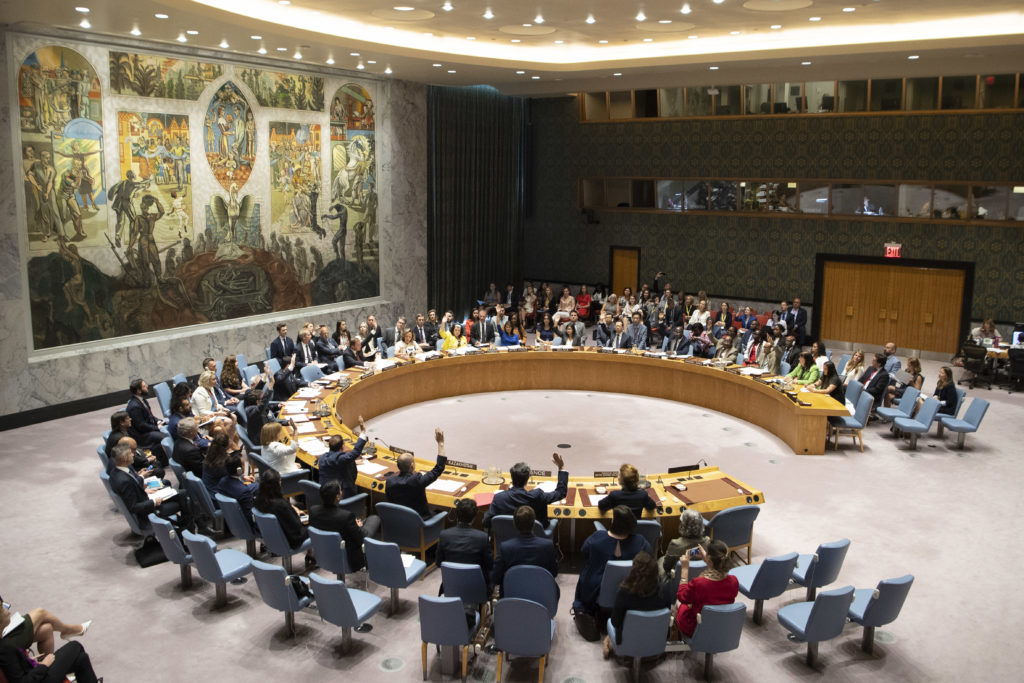GCPEA News
Four New States Endorse the Safe Schools Declaration, Bringing the Total to 79
GCPEA PRESS RELEASE, July 11, 2018
(July 11, 2018 – New York) Djibouti, Macedonia, Peru, and San Marino have become the latest countries to endorse the Safe Schools Declaration, an international political commitment to protect education in war, said the Global Coalition to Protect Education from Attack (GCPEA). Seventy-nine countries have now joined the Declaration, including 21 African Union, 35 Council of Europe, and 14 Organization of American States members.
The endorsements were announced on July 9, during the United Nations Security Council open debate on children and armed conflict, which focused on protecting children in war as a means of preventing future conflict.
“Signing the Safe Schools Declaration is an important step to promoting peace: by using the Declaration, countries can not only save the lives of students and teachers today, but can play a role in preventing conflict tomorrow,” said Diya Nijhowne, GCPEA director. “By committing to adopt conflict-sensitive approaches to education, for example, governments that have endorsed the Declaration build education systems that consciously avoid exacerbating divisions that drive conflict.”
Argentina delivered a statement on behalf of countries that have endorsed the Declaration, calling on all Member States, and particularly members of the Security Council, to “recognize the Declaration as a tool to protect children, and to join the Safe Schools Declaration community.” The statement stressed that, “continued access to safe education can help protect children and youth from the worst impacts of armed conflict and can also help to prevent the emergence of new ones.”
In addition, the statement of the endorsing states also welcomed the commitment of the Government of Spain to host the Third International Conference on Safe Schools in 2019, and expressed hope that all UN Member States would attend.
At least 30 governments welcomed the Safe Schools Declaration or expressed their support for it in their individual statements at the debate. In addition, the Special Representative of the Secretary General on Children and Armed Conflict, Ms. Virginia Gamba, and the Executive Director of UNICEF, Ms. Henrietta Fore, also urged countries to join the growing community of endorsing states. Ms. Fore stated: “So as we renew our call for these conflicts to stop, we also call for zero tolerance of all violations against children — violations that fuel grievances that enflame and perpetuate conflicts across generations. Violations like attacks on hospitals and schools, which is why we call again on states to endorse and implement the Safe Schools Declaration.”
For the first time since 2015, a resolution on children and armed conflict was adopted at the debate. Resolution 2427 urges Member States, United Nations bodies, and civil society to take specifically into account girls’ equal access to education. Moreover, it expresses deep concern about the military use of schools and encourages Member States to take concrete measures to deter the use of schools by armed forces and non-State armed groups in contravention of applicable international law; calls on UN country-level task forces to enhance monitoring and reporting on military use of schools; and urges Member States to ensure that attacks on schools are investigated and those responsible duly prosecuted.
By endorsing the Safe Schools Declaration, states commit to endorse and use the Guidelines for Protecting Schools and Universities from Military Use during Armed Conflict, which provides practical guidance for armed forces and armed groups to avoid using schools as bases and barracks, weapons stores, training grounds, and for other military purposes. GCPEA’s recent publication, Education under Attack 2018, found that military use of schools occurred in 29 countries between 2013-2017, putting those schools at risk of attack by opposing forces, or at a minimum, causing widespread drop-out by students, particularly girls, whose parents often remove them from school for fear of sexual abuse by soldiers; absenteeism by teachers; and damage to infrastructure and educational materials.
In his report on children and armed conflict presented at the debate, the UN Secretary-General repeated his recommendation for all Member States to endorse and implement the Safe Schools Declaration, welcoming in particular the efforts made to date by the governments of Nigeria, Mali, and Yemen. The report lists 13 specific parties in Afghanistan, Central African Republic, the Democratic Republic of Congo, Iraq, Nigeria, Somalia, South Sudan, Syria, and Yemen for engaging in attacks on schools and/or hospitals.
“Over the next year, and ahead of the Third International Safe Schools Conference, those countries mentioned in the Secretary General’s report have the opportunity to prove their commitment to protecting children in armed conflict by endorsing and implementing the Safe Schools Declaration,” said Nijhowne. “Only when countries take concrete action to provide safe education, including by protecting girls and women when warring parties specifically target them, will the possibility of peace become real.”





